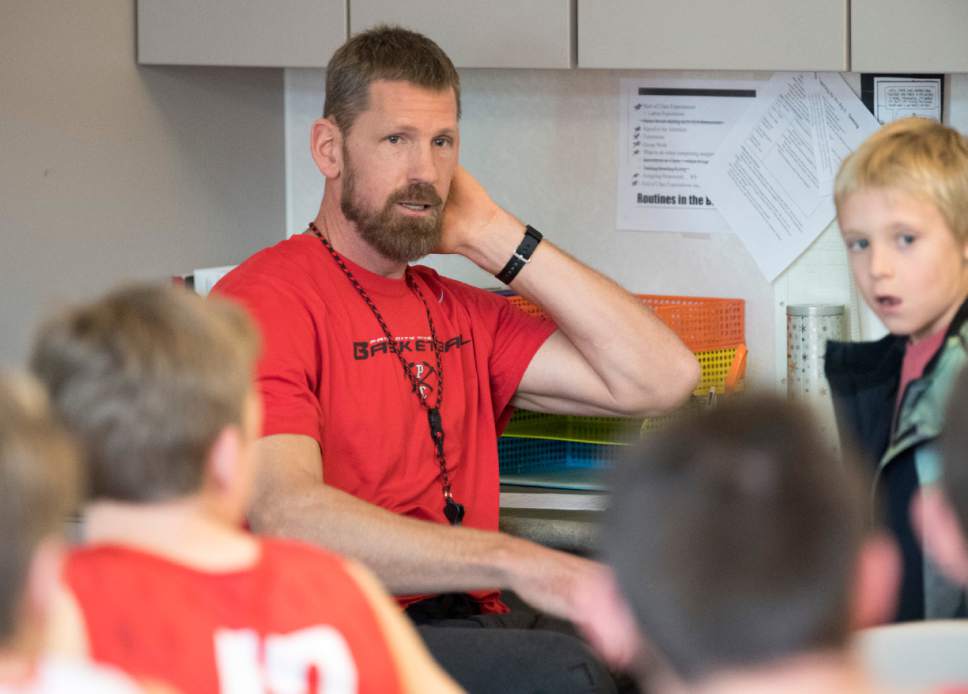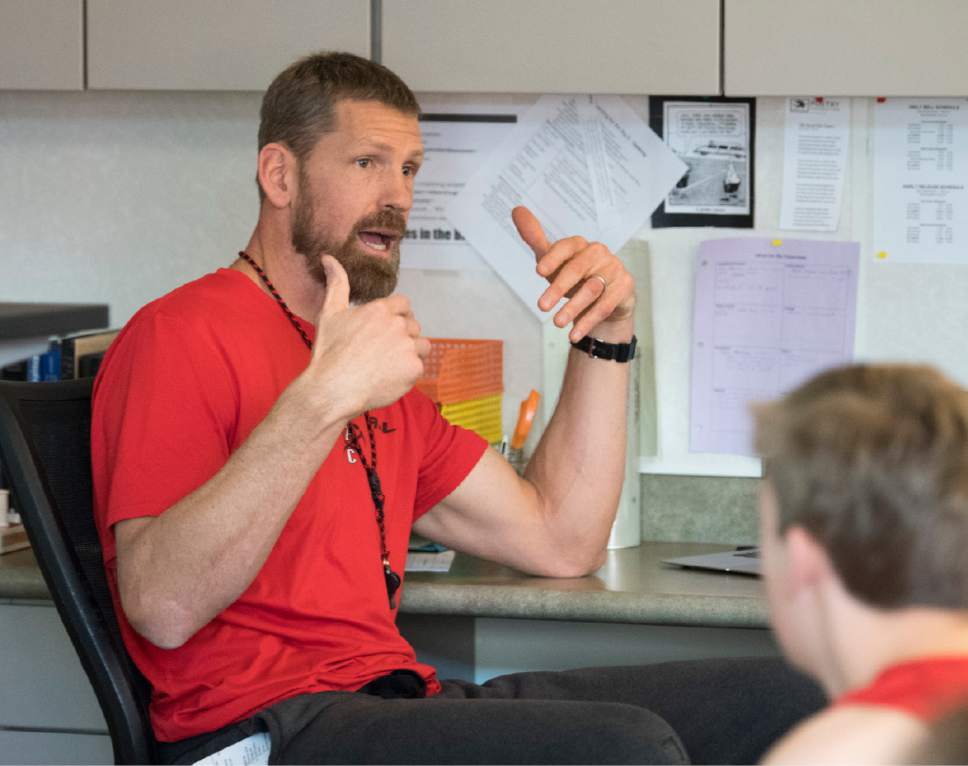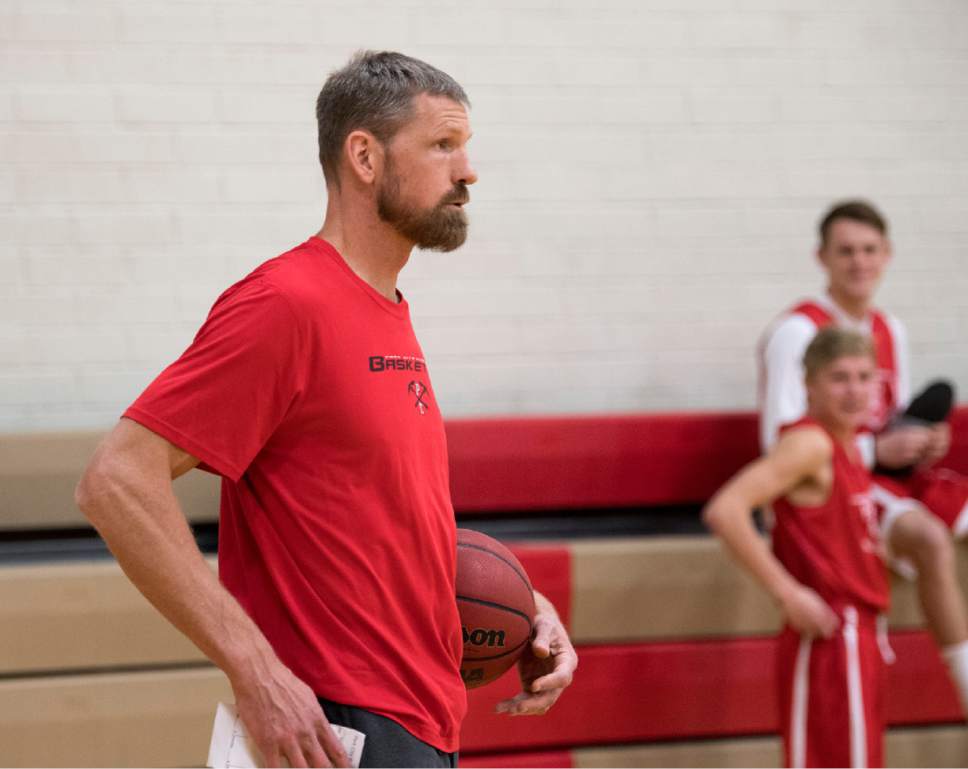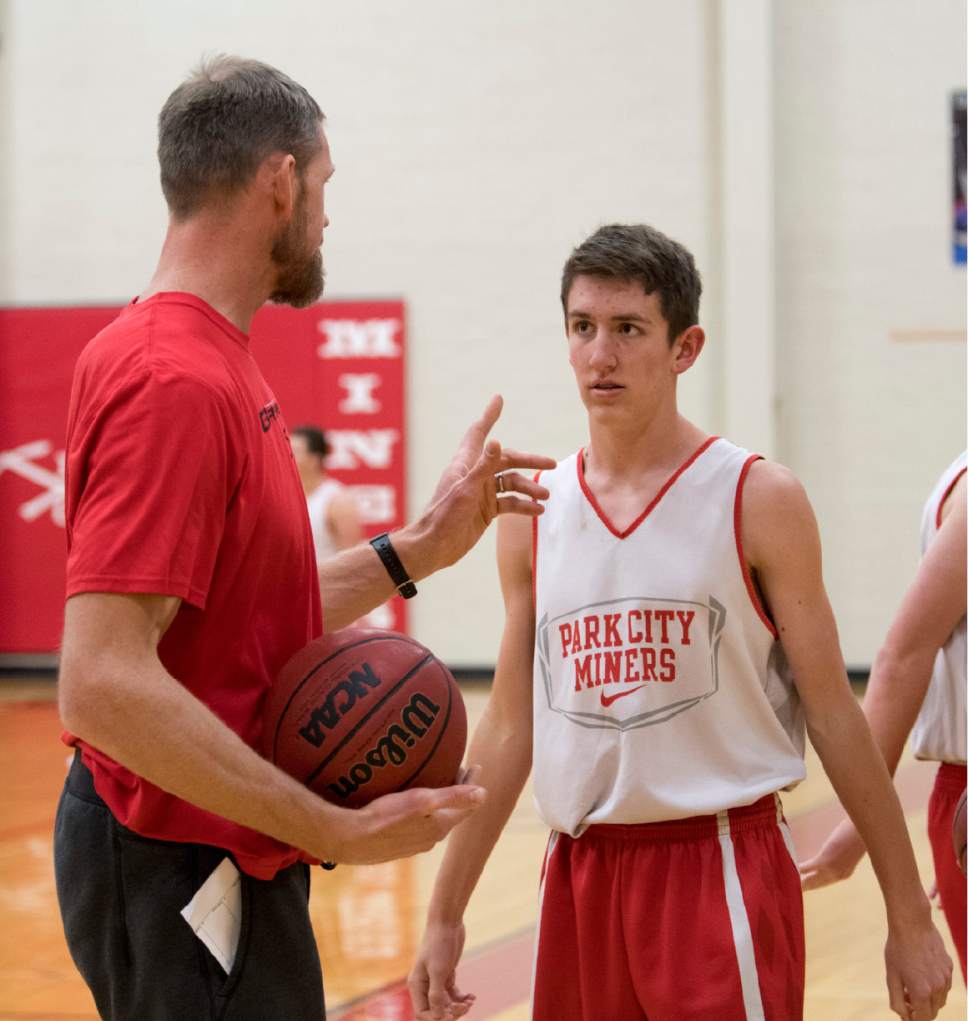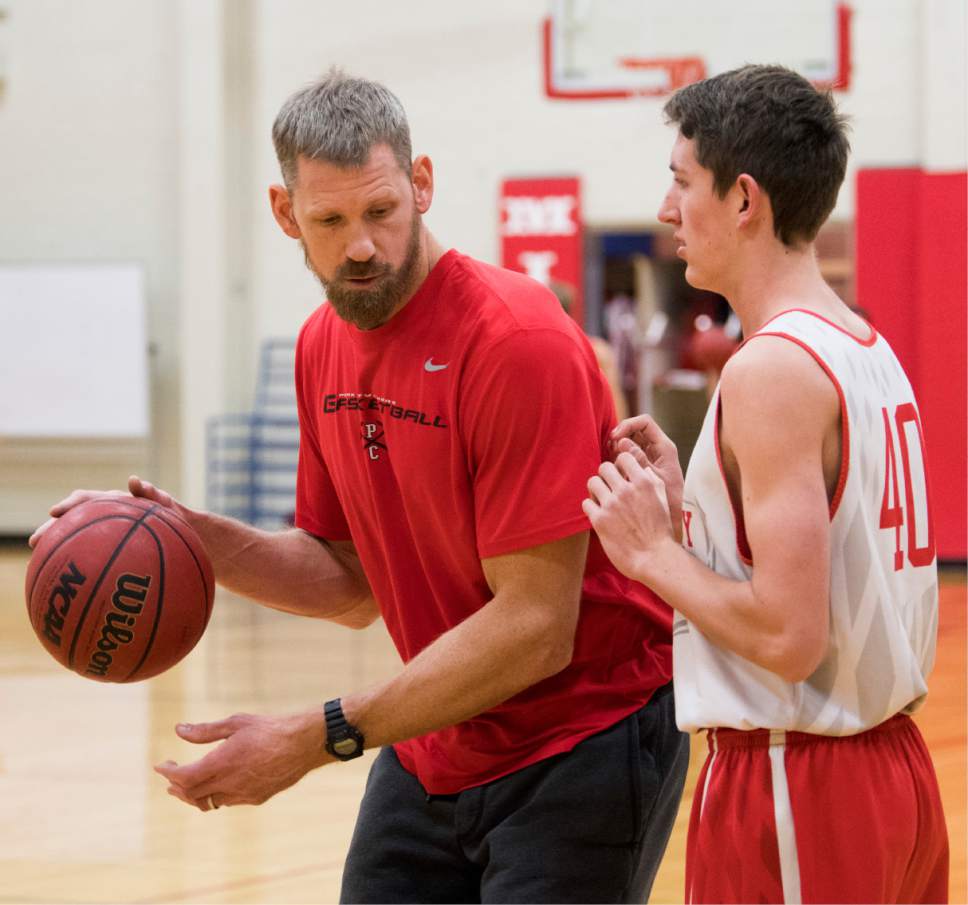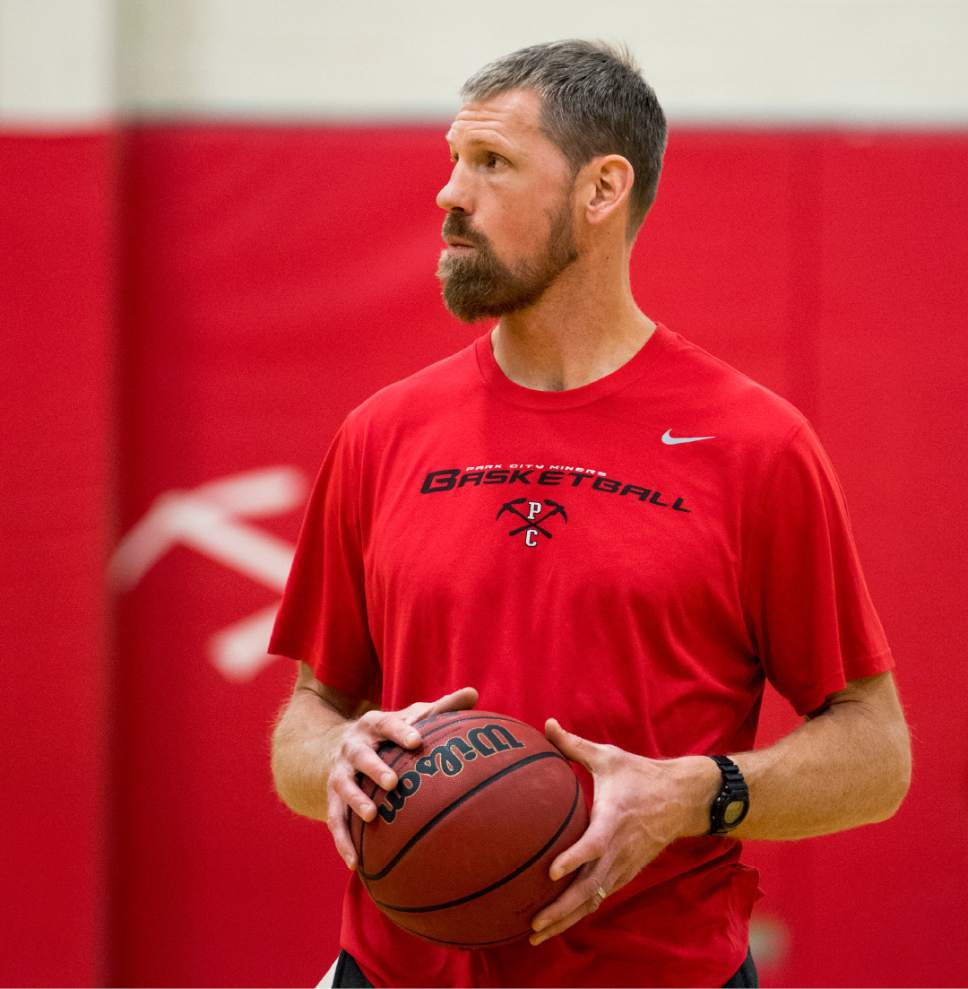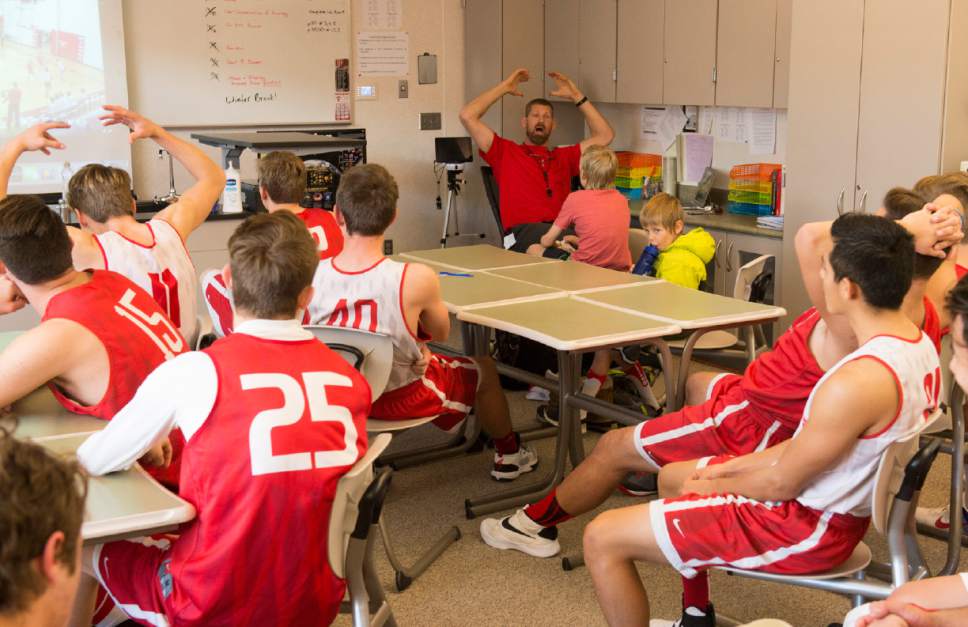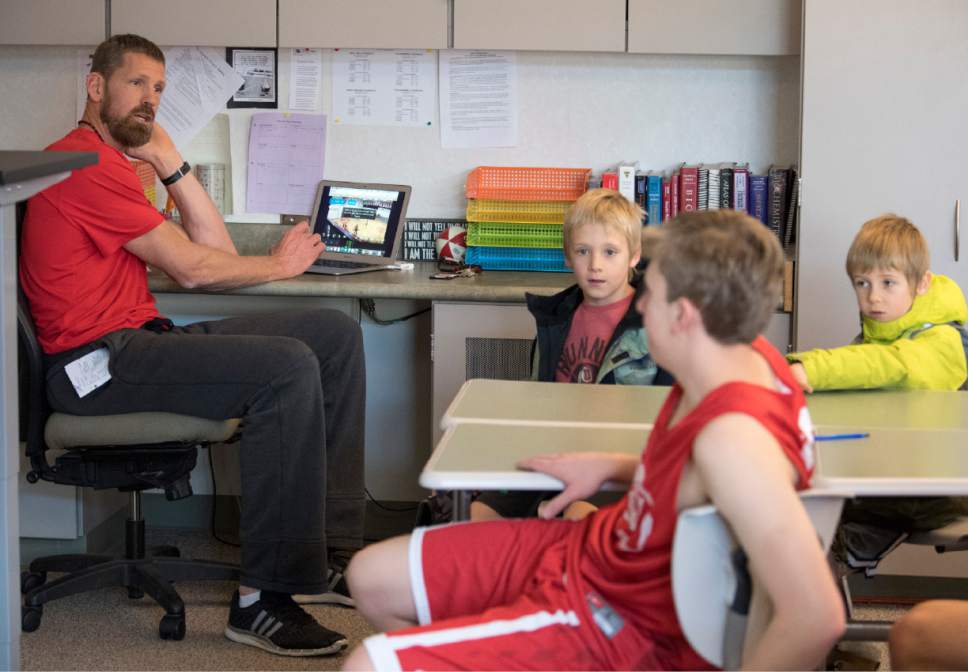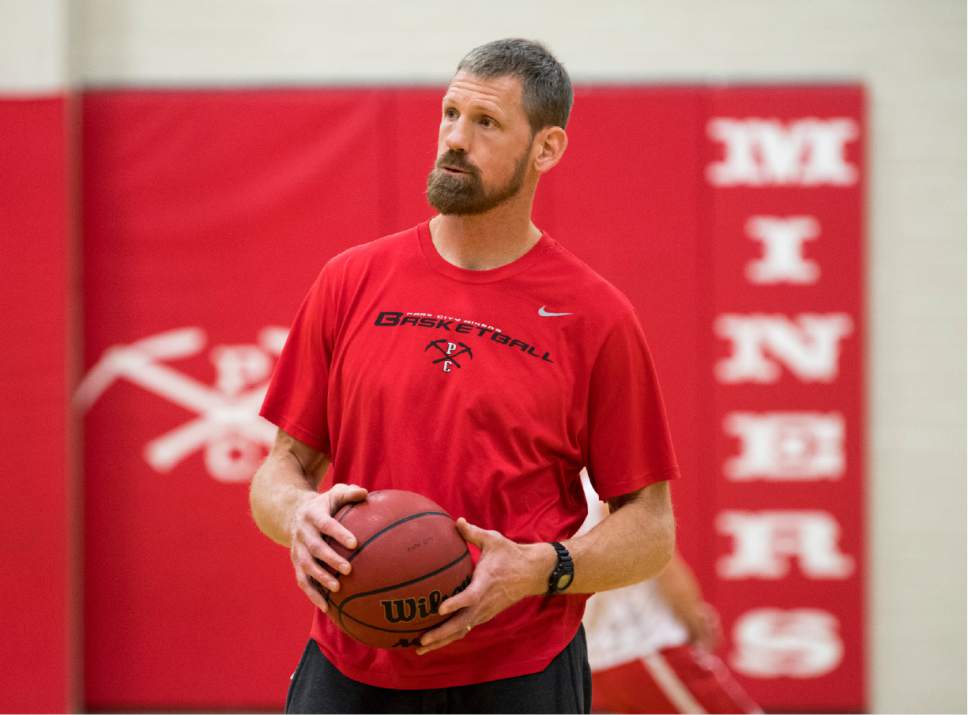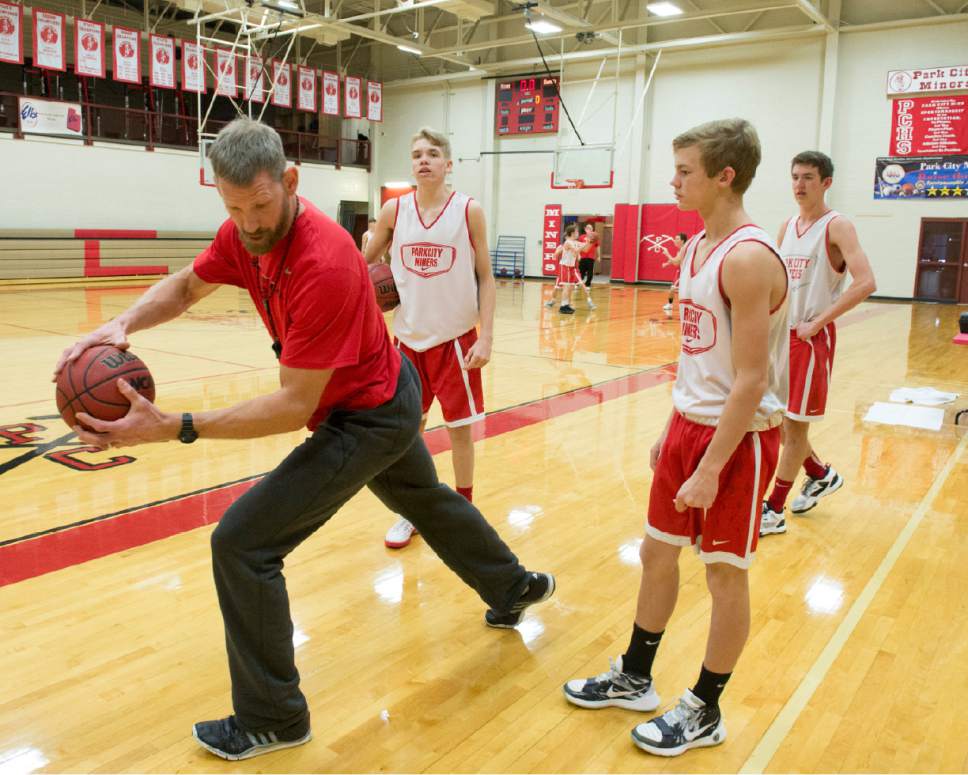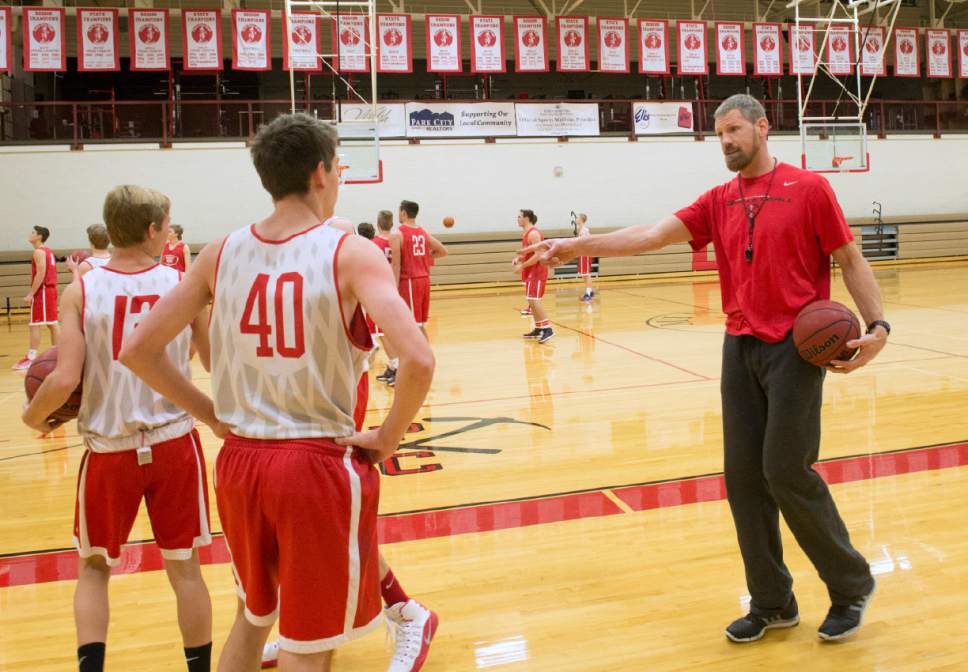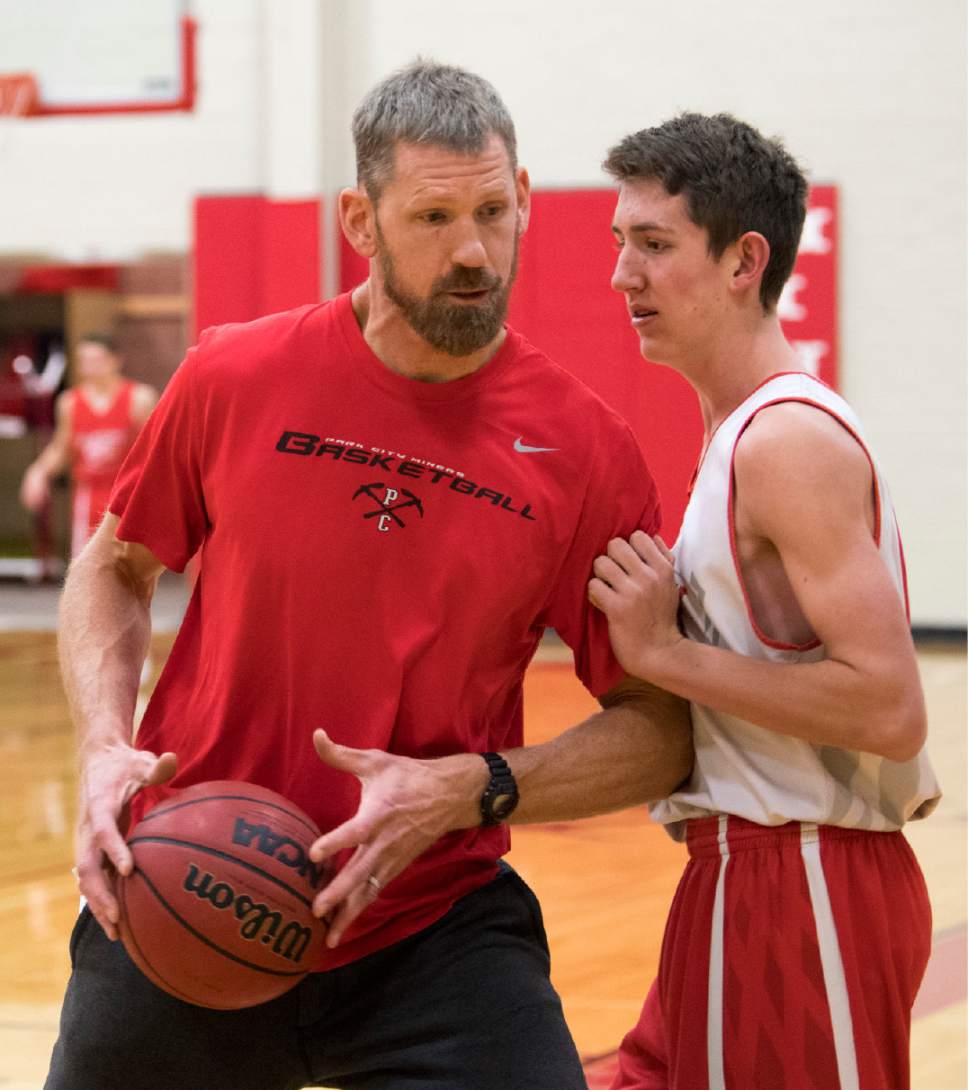This is an archived article that was published on sltrib.com in 2016, and information in the article may be outdated. It is provided only for personal research purposes and may not be reprinted.
Park City
Before introducing the starting players on a snowy evening in mid-December, Park City High School's announcer looked around, publicly welcomed the sparse crowd and said, "I guess the student body had other plans tonight."
That's only fair. Park City's basketball coach never pictured himself in this gym, either.
Michael Doleac figured he was finished with the game after spending 10 seasons in the NBA — which was exactly 10 years longer than he once expected to play professionally, before he developed into a first-round draft choice and deferred his plans to attend medical school.
His former University of Utah teammates remember him as a team leader, a motivated student and an athlete who loved to have fun off the court but became highly focused in practices and games. "I'm not surprised he's a coach," Britton Johnsen said.
One ex-Ute is shocked, though. "Absolutely no way I wanted to coach basketball," Doleac said. "I wanted nothing to do with it."
Yet here he is on a weekday morning during the school's holiday break, making detailed suggestions to players at every position. He's talking constantly during the two-hour session and channeling the late Rick Majerus — minus the Wisconsin accent, the colorful language and the occasionally graphic illustrations that framed the Ute coach's methods.
Doleac, 39, played for the likes of Pat Riley and Chuck Daly in the NBA, but he ranks Majerus as his most influential coach. "I try to tone down a little of his intensity, although I do find myself getting frustrated the same way," Doleac said. "I just try and say it a little bit differently than he did. But I really appreciate how hard it was for him to be as dedicated to every little detail, every day, as he was. … I'm nowhere near that level."
With a two-thirds teaching contract, Doleac conducts four physics classes and enjoys the challenge of "just trying to make learning fun," he said. He's in his first season as head coach of the Class 3A basketball team, following two years as an assistant.
After playing for six NBA teams, earning nearly $20 million as a 6-foot-11 backup center and winning an NBA championship with Miami, Doleac studied science in the interest of becoming a teacher. He read science books written by Stephen Hawking and others during his NBA career and kept in touch with Richard Ingebretsen, a Utah physics professor.
"I was never a gym rat," he said. "So it was never my passion. Basketball wasn't the one-and-only thing."
Shortly after retiring in 2008, Doleac returned to the school to complete a master's degree in physics. "I sat down with him and told him that his life's great work was helping young people," Ingebretsen once said in a Tribune interview, "not in basketball."
Turns out, he can do both.
Doleac may have pursued medical school after the NBA, but the math didn't work for him. Having started a family with his wife, Shannon, a former Ute gymnast, he didn't want to become a medical resident while his two boys (Taylor, 8, and Boston, 6) were growing up.
So he's teaching and coaching students who were born after Doleac helped the Utes reach the 1998 NCAA championship game. Even during the team's one-win season of 2015-16, Doleac's experience with the Miners unlocked something in him. "You remember all the parts of the game you do love," he said.
The Miners (3-5) are improving, although they have lapses in games. As they struggled against North Summit's full-court press, Doleac diagrammed plays on a whiteboard, using his thumb as an eraser. When the scheme succeeded, he turned to an assistant and said, "How easy is that?"
But then the Miners regressed in an eventual 63-44 loss, even as Doleac remained upbeat in huddles that ended with a "Team together" chant, a theme from his Ute days.
"He really tries to encourage people more than reprimand them," Park City senior Devin Valiquett said. "He makes you want to play for him."
The players love his stories about the NBA, even if Doleac "kind of shrugs it off, because it's normal stuff to him," Jack Lecher said.
Drafted No. 12 overall by Orlando in 1999, Doleac achieved his goal of playing 10 years in the NBA. "The first five years were fun because I was young and dumb and trying to figure out how good I was," he said. "The second five years, I kind of knew where I was in the league."
Doleac joined Shaquille O'Neal, Dwyane Wade, Gary Payton and Alonzo Mourning on Miami's 2006 title team. He appeared only once in the NBA Finals vs. Dallas, playing the last 69 seconds of a Game 4 rout and sharing the court with former Ute teammate Keith Van Horn of the Mavericks. That limited contribution is why Doleac ranks Utah's Final Four run as a bigger highlight, even if it ended badly. He scored 12 of his 15 points in the first half as the Utes led Kentucky 41-31 in San Antonio, only to fade in a 78-69 defeat.
Those Utes remain close, with Doleac observing, "We were so good primarily because we all cared about each other."
Doleac hopes the Miners develop those bonds and benefit from becoming selfless as part of a team. Sharing the ball is his No. 1 theme.
As the Miners exited the court after practice, Taylor and Boston Doleac started dribbling and shooting. Their father soon joined them and organized a drill, with one brother passing to the other, cutting for a layup. The boys eagerly responded to the direction of a coach who was wrong when he thought he could stay away from basketball.
Twitter: @tribkurt —
About Michael Doleac
Age • 39
Family • His wife, the former Shannon Bowles, joined him this year as a member of the University of Utah's Crimson Club Hall of Fame. They have two sons: Taylor, 8, and Boston, 6.
Ute career • Averaged 11.6 points and 6.8 rebounds in 131 games over four seasons. His last three teams reached the Sweet 16, the Elite Eight and the NCAA title game. Named third-team All-America as a senior.
Education • Named first-team Academic All-America in 1998, returned to Utah to complete a degree in biology and later earned a master's degree in physics.
NBA career • No. 12 pick by Orlando in the 1998 draft, three spots ahead of Magic teammate Matt Harpring. Averaged 4.9 points in 587 games over 10 seasons with six teams.


